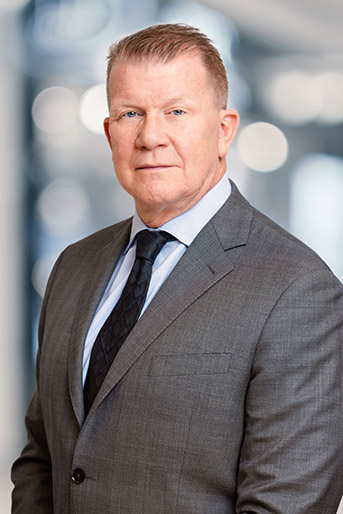The Future of Elongated Wind-Downs in Restructuring

In recent years, faced with the ever-increasing costs or in-court restructurings, the corporate world has embraced out-of-court, elongated wind-down or restructuring solutions.
When pre-packaged debt-to-equity conversions are not feasible, companies are choosing to wind down operations over longer periods, avoiding quick liquidations and sudden shutdowns. In so doing, businesses better manage the intricacies of market fluctuations, customers/vendor relationships and most importantly, employee relations and reputational issues. In employing the elongated wind-down model, Hilco has successfully wound down unprofitable businesses and in the process, managed employee/customer/vendor relationships and avoided the negative publicity associated with sudden liquidations.
This article is designed to delve into the advantages, obstacles, and future directions of these prolonged wind-down processes, providing insights and hard won knowledge in this evolving liability management strategy.
Elongated wind-downs offer several significant benefits to key stakeholders by focusing on enhanced recovery opportunities and risk management. Extending the wind-down process allows lenders, vendors, customers, and other investors more time to strategize and execute profitable asset monetization events, often increasing recovery values as a result of opportunistic market timing (an obvious example would be to liquidate inventories in-season as opposed to out-of-season). Additionally, a prolonged wind-down means a managing strategic relationship with customers, allowing the collection of accounts receivable to be tied to continued service or sales to customers. Moreover, while an entire business may not be an attractive target for acquirors, parts of businesses such as customer lists, individual company assets, or software and intellectual property can be valuable pools of recovery and elongating the wind-down process can increase probability and amount of recovery.
From an economic perspective, elongated wind-downs can preserve corporate reputations and ameliorate employee relationships. Immediate business closures are dangerous events in the reputational life of companies and are a source of employee class action lawsuits. By adopting an elongated wind-down strategy, a company can mitigate, even eliminate, the negative effects that a sudden shutdown can trigger in terms of reputation among an employee, customer, and local (even national) community.
Despite their benefits, elongated wind-downs are not without challenges. These processes require significant planning and financial resources to sustain operations during the wind-down period. Additionally, maintaining morale and productivity among a workforce that knows the company is closing can be difficult. Strategic communication and management are critical in navigating these challenges.
Hilco has broad industry experience in conducting these elongated wind-downs and is adept at efficiently planning these processes and uniquely qualified to deploy its experience to mitigate some of these significant challenges. Maybe most importantly, Hilco has available capital to invest in these scenarios, permitting Hilco’s counterparty to focus on profitable business operations.
In today’s dynamic global economy, several overarching trends are influencing the extension of wind-down periods across various industries. Economic fluctuations and geopolitical uncertainties are major drivers, as businesses must adapt to this economic unpredictability while trying to optimize outcomes from dissolution processes. This economic unpredictability forces companies to take a more measured approach to winding down, often stretching out timelines to adjust for market conditions, maximizing asset value, and/or finding suitable buyers.
For businesses with unprofitable business units, encumbering other, more profitable business segments, an elongated wind-down may provide a more cost-effective solution and achieve the same objectives as a sudden shutdown – cessation of attention and capital to an unprofitable business venture. Importantly, businesses with cross-over customer and supplier contracts can preserve such commitments by implementing a longer wind-down period that employs a more gradual, consensual approach.
Looking ahead, several trends are likely to influence the prevalence and nature of elongated wind-downs:
- Economic Uncertainties: In times of economic uncertainty, companies may prefer elongated wind-downs to maintain some level of operational stability while assessing long-term strategic options.
- Globalization and Supply Chain Complexities: Companies today are more interconnected than ever before, relying on global supply chains that can be intricate and difficult to disentangle. When a business decides to wind down operations, whether partially or entirely, it may face extended periods of negotiation and logistical challenges to untangle these global networks, impacting timelines and the nature of the wind-down.
- Technological Advancements: Technology can streamline the wind-down process, from asset sales conducted via digital platforms to the use of AI in managing and forecasting the financial aspects of the wind-down.
The strategic application of elongated wind-downs in restructuring represents a significant evolution in corporate crisis management. This approach offers a more tolerant and potentially more profitable alternative to traditional methods, balancing immediate financial imperatives with long-term stakeholder benefits. As businesses continue to adapt to changing economic conditions, elongated wind-downs are likely to become a standard component of the restructuring liability management toolkit, reflecting a broader shift towards sustainability and strategic patience in business operations.



